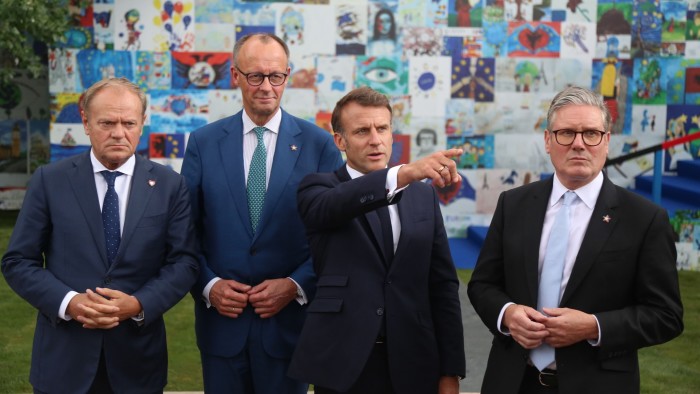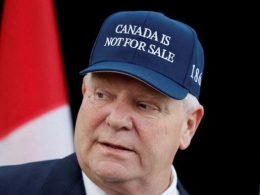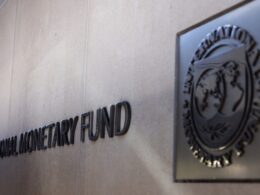On Monday we will witness something between a shuffle and a skip as the UK attempts to retrace its steps on the road back to Europe. The detailed content of the “reset” agreed at the EU-UK summit, and the tally of who conceded what, will absorb most attention. More important is what it says about the deeper political shifts required to get this far and the tensions that will shape where things go from here.
The delivery of two UK trade deals in the past few weeks — with India and the US — may prove more beneficial for relations with the EU than with those two countries. Full details haven’t emerged but it seems clear that these deals exclude anything that might close off the possibility of deeper UK-EU relations. In particular, the UK has held the line on strict food standards for US beef that is allowed into the country tariff-free. Regulatory change has been minimised.
Having two deals in the bag will also provide important political capital for Prime Minister Sir Keir Starmer to strike an agreement with the EU. He can now dismiss the facile criticism that Labour is trashing the global trade opportunities offered by Brexit with concrete proof. He can even with some plausibility reassert his mantra that the country need not choose between the US and the EU.
But there is the rub. If he doesn’t need to choose, it’s not because he can have it both ways, but because he and the UK have chosen neither.
The best-case scenario for Monday is agreement in principle on all the various issues under discussion. A defence and security pact will hopefully be struck. In parallel, the two sides may improve economic relations with commitments to veterinary, food and plant standards to ease border checks; easier travel and work rights for the young and professionals; integrating energy trade and aligning emissions policies; as well as an understanding on fisheries access.
Businesses on both sides of the channel are pleading for these agreements to be made. The EU and the UK know the value of demonstrating they can work together in the face of geopolitical threats. But even if this produces a deal, it will not resolve the deep contradiction Brexit created.
The summit should impart three important lessons. The first is that any success that emerges will be because the UK has moved — not always on details, but on principles. There will be some form of “dynamic alignment”, continuing UK adaptation to EU rulemaking — for the whole of the UK and not just Northern Ireland. The Starmer government will bury for good the absolutist opposition to European Court of Justice influence on UK laws. And it will begin to accept that easing the flow of people between the UK and EU is a good thing for both economies, not a tribute paid by Britain to the continent.
The second lesson is that most of the gains will also be the UK’s. Reintegrating into bits of the single market — food and plants, energy and some modest areas of service work — will mend some of the economic damage caused by a hard Brexit. This is largely a function of size: when one economy integrates with another six times its size, the smaller one benefits much more.
The upper echelons of the UK government may now accept this fact; however, they are still not willing to make that argument to the public. As long as benefits are seen as tantamount to concessions whenever they flow from alignment rather than unilateralism, the UK debate will remain at a teenage level.
Third, this reveals that being a “sovereign equal” to the EU is much like a country joining — or leaving — the union, in that its choice boils down to accepting or rejecting the EU’s menu of terms.
This “reset” is proof that the UK will always remain a supplicant in this relationship, doomed never to free itself from interminable haggling over policy, but without the truly equal standing of a member state (or indeed the outsize standing of a large one). Even Norway, with full single market membership, has had to enter into dozens of further binding agreements.
Granted, the UK is special; it is too big and powerful for the EU to treat it with benign neglect. It is obliged to engage, but can never offer special treatment — better than its own members — that would meet all the UK’s demands.
Monday’s warm words won’t change the fact that European politics will remain permanently unstable so long as the UK remains outside the EU. That alone won’t ensure its eventual return, but frustrations on both sides of the Channel will endure until it happens.
Source link









